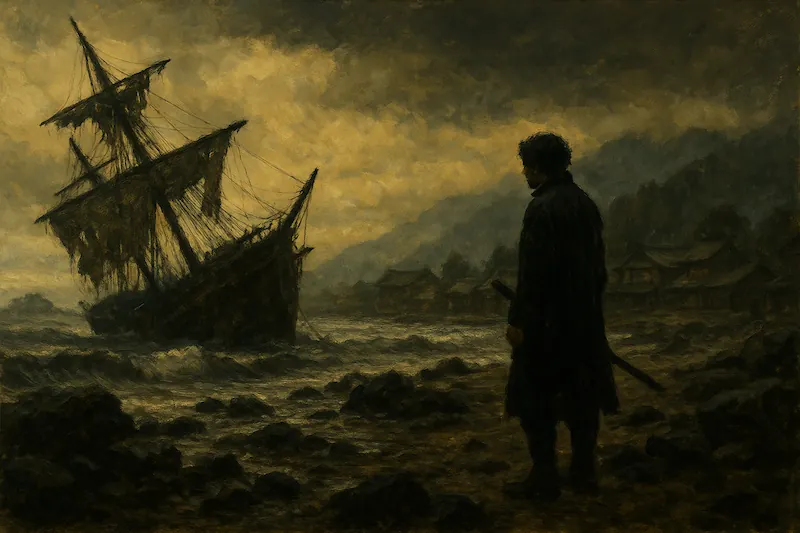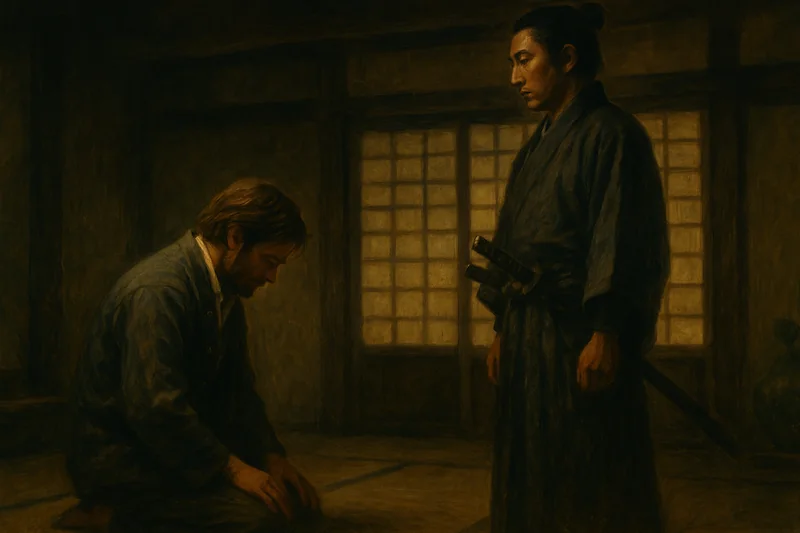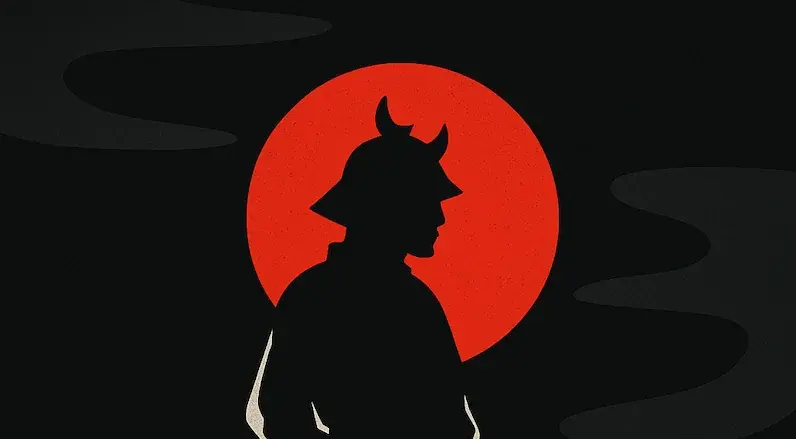While Toranaga feigns his own exile, he calmly orchestrates every move of the unfolding conflict. By skillfully delaying decisions at the Imperial Court, he undermines the unity of his enemies and lures Ishido into overconfidence—behind it all lies a meticulously calculated strategy built upon sacrifice and deception.
Hiromatsu’s seppuku is depicted as a tragic consequence of Toranaga’s “surrender,” delivering one of the most emotionally powerful moments in the series. The words he leaves to his son, Toda Hirokatsu, symbolize the profound weight of samurai loyalty and pride.
Mariko’s sacrifice forms the very heart of the Osaka Castle arc. Her resolute self-determination before the enemy becomes a pivotal turning point—shattering political deadlock and transforming the course of the conflict.
Meanwhile, Blackthorne’s ship, the *Erasmus*, is destroyed under Toranaga’s secret orders. This act symbolizes the Englishman’s destined roots in Japan. Deprived of any means to return home, he comes to embrace his life there—shaped by duty, love, and loss.
In the final episode, Toranaga reveals the full scope of his master plan to Yabushige. Mariko’s journey, the ship’s destruction, even Yabushige’s humiliation—all were deliberate steps in a calculated path toward dominance.
Mariko’s death completely destroys Ishido’s legitimacy. Lady Ochiba, losing faith in Ishido, allies herself with Toranaga. One by one, Ishido’s vassals abandon him, allowing Toranaga to turn the tide toward an inevitable victory—the Battle of Sekigahara.
Toranaga does not rise through a glorious triumph, but as an unavoidable consequence of destiny. Blackthorne remains behind, forever transformed by bushidō, by the people, and by the profound experiences that reshape his very soul.
“He will never leave Japan again.”
This story is far more than a mere “clash between East and West.” It is an exploration of what we let go of, what we hold onto, and how we rebuild ourselves amid conflict. Through death, loyalty, and quiet defiance, SHŌGUN offers one of television’s most extraordinary journeys of transformation.


